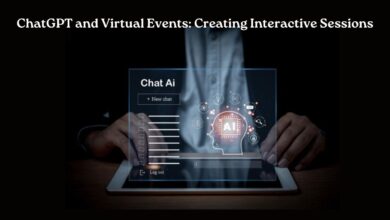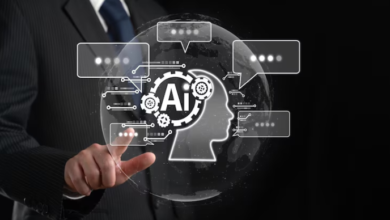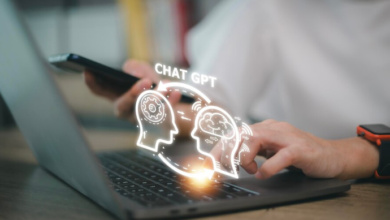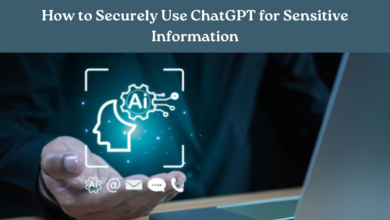How to Implement ChatGPT in E-learning Platforms for Tutoring

In the ever-evolving landscape of online education, integrating advanced technologies like ChatGPT into e-learning platforms has become a game-changer for tutors and educators. ChatGPT, powered by OpenAI’s sophisticated language model, offers an innovative way to engage students, provide personalized assistance, and enhance the overall tutoring experience. Let’s explore how tutors can effectively implement ChatGPT in e-learning platforms for tutoring.
Understanding ChatGPT
ChatGPT is an AI model engineered to comprehend and produce text resembling human language from provided input. It excels in natural language processing tasks, making it a valuable tool for educational purposes. The model is capable of answering questions, providing explanations, and even simulating conversation, making it ideal for one-on-one tutoring or group interactions.
Implementing ChatGPT in E-learning Platforms
1. Integrating ChatGPT into Tutoring Sessions
Integrating ChatGPT into e-learning platforms enhances online education. By embedding ChatGPT for live chat support, students benefit from instant assistance during tutoring sessions, ensuring timely responses to queries regardless of time zones or schedules. ChatGPT’s personalized interaction further enriches the learning experience by providing tailored explanations and recommending resources based on individual needs. Additionally, through interactive Q&A sessions, students engage in conceptual exploration, clarify doubts, and develop critical thinking skills as they interact with ChatGPT to deepen their understanding of course material. Ultimately, leveraging ChatGPT in this way optimizes tutoring sessions by offering immediate, personalized support and fostering active student engagement with the curriculum in the e-learning environment.
2. Personalized Learning Experience
In the world of personalized learning, incorporating ChatGPT into e-learning platforms can equip tutors with powerful tools to cater to individual student needs. With adaptive tutoring, ChatGPT can dynamically adjust to each student’s learning pace and style by analyzing their interactions and responses. This personalized approach enables ChatGPT to offer tailored recommendations and suggest supplementary resources that align with the student’s unique learning requirements, ultimately enhancing comprehension and retention.
Moreover, utilizing ChatGPT for feedback and assessment transforms the tutoring process by providing instant evaluations on assignments, quizzes, or practice problems. This immediate feedback loop not only empowers students to track their progress in real-time but also aids tutors in identifying areas where students require additional support or clarification. By leveraging ChatGPT in these capacities, tutors can optimize their teaching strategies and devote more attention to addressing specific learning gaps, ultimately fostering a more effective and adaptive educational environment within e-learning platforms.
3. 24/7 Availability
Incorporating ChatGPT’s 24/7 availability into e-learning platforms provides students with unparalleled continuous support, a stark departure from traditional tutoring models. This accessibility empowers students to access the platform at their convenience, regardless of time or location, fostering an uninterrupted learning experience. Unlike scheduled tutoring sessions, ChatGPT’s round-the-clock presence ensures that students can seek assistance or clarification on topics at any hour, promoting consistent engagement with course materials.
This continuous support not only accommodates diverse learning schedules and time zones but also encourages self-directed learning by allowing students to revisit concepts or seek guidance whenever needed. As a result, ChatGPT’s availability contributes to a more accessible and flexible educational environment, promoting ongoing learning and academic growth beyond conventional tutoring sessions.
4. Enhancing Engagement
To boost engagement in e-learning, integrating ChatGPT can facilitate conversational learning where it acts as a virtual tutor, encouraging students to freely ask questions and participate actively. Additionally, incorporating ChatGPT into educational games or quizzes adds a fun, interactive element to learning, making it more enjoyable while reinforcing key concepts. By leveraging ChatGPT in these ways, e-learning becomes more dynamic and engaging, fostering deeper student involvement and enhancing the overall educational experience.
5. Improving Tutor Efficiency
Integrating ChatGPT into e-learning significantly enhances tutor efficiency in two key ways.
Firstly, ChatGPT automates routine queries, allowing tutors to focus on more complex or personalized aspects of tutoring. This frees up valuable time for tutors to provide detailed explanations, personalized feedback, and customized learning strategies.
Secondly, ChatGPT provides valuable data insights by analyzing student interactions, identifying common misconceptions, and detecting learning patterns. This data helps tutors optimize tutoring strategies, refine content delivery, and tailor instructional approaches to better meet student needs and preferences. By leveraging ChatGPT’s time-saving tools and data-driven insights, tutors can deliver more effective and personalized tutoring experiences, ultimately improving student outcomes in the e-learning environment.
6. Supporting Different Learning Styles
Integrating ChatGPT into e-learning platforms facilitates support for different learning styles by recommending tailored resources based on individual preferences. For visual learners, ChatGPT suggests visual aids like diagrams or infographics to enhance comprehension.
Meanwhile, auditory learners benefit from ChatGPT’s recommendations of audio resources such as podcasts or recorded lectures. By leveraging ChatGPT to understand and adapt to varying learning styles, tutors can provide a diverse range of multimedia materials that cater to each student’s preferred mode of learning. This approach promotes inclusivity, engagement, and effective knowledge acquisition across different learning preferences within the e-learning environment.
7. Multilingual Support
ChatGPT enhances e-learning platforms by providing multilingual support through language translation. This feature breaks down language barriers, making tutoring accessible to students from diverse linguistic backgrounds. Tutors can interact with students in their preferred language, facilitating equitable access to educational resources and fostering inclusivity within the learning environment. ChatGPT’s multilingual capabilities enhance communication and collaboration across different linguistic contexts, enriching the overall educational experience.
8. Ensuring Ethical AI Use
To ensure ethical use of AI like ChatGPT in e-learning, it’s important to implement monitoring and moderation measures. By closely monitoring ChatGPT interactions, tutors and platform administrators can proactively identify and address inappropriate content or behavior, such as offensive language or discriminatory remarks. Setting up filters and guidelines helps prevent misconduct, maintaining a safe and respectful learning environment. Clear ethical standards and guidelines for AI usage promote responsible behavior among users, ensuring that ChatGPT enhances learning experiences while upholding ethical principles.
Best Practices for Implementation
To enhance the efficiency of ChatGPT integrated into e-learning platforms for tutoring purposes, it is crucial to follow some best practices. Firstly, tutors should provide clear guidelines to students on how to interact with ChatGPT to get accurate responses. Secondly, there should be continuous monitoring of ChatGPT interactions to ensure the relevance, appropriateness, and accuracy of responses. Thirdly, it is essential to stay updated with ChatGPT technology advancements to take advantage of new features and enhancements that can enhance the tutoring experience. By implementing these practices, tutors can optimize the potential of ChatGPT in supporting student learning within e-learning environments.
Conclusion
Incorporating ChatGPT into e-learning platforms for tutoring opens up exciting possibilities for educators and students alike. By leveraging this AI technology, tutors can create immersive and personalized learning experiences that foster engagement, improve learning outcomes, and ultimately, transform the way education is delivered in the digital age. As we continue to embrace innovative solutions, ChatGPT stands out as a valuable tool in shaping the future of online education.
By following these guidelines and harnessing the power of ChatGPT, tutors can navigate the complexities of e-learning and deliver exceptional educational experiences that empower students to succeed in their academic journeys.
To know more about AI enhanced E-learning platforms, visit www.intogeeks.com.
High-Volume Hashtags: #AI #Education #OnlineLearning #EdTech #Tutoring #Elearning #ChatGPT #StudentEngagement #PersonalizedLearning #ArtificialIntelligence #DigitalEducation #FutureOfLearning




